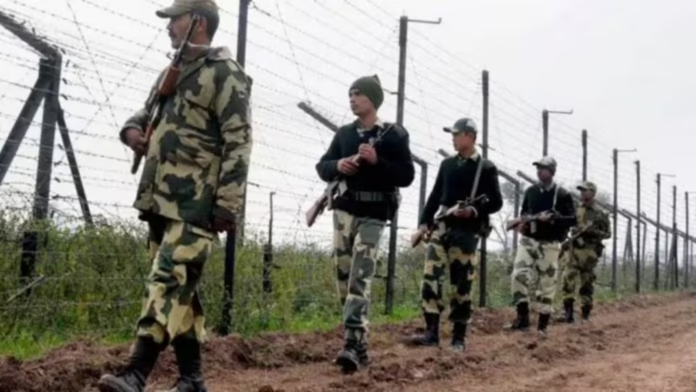A Border Security Force (BSF) jawan, stationed in the 114th Battalion camp at Shilaichhari in Tripura’s Gomati district, took his life on January 16, 2025. Using his service rifle, he shot himself, leaving the camp shaken and his colleagues in deep grief. The incident occurred in the early hours, catching many off guard as they began their routine duties.
The jawan’s identity, though not immediately disclosed, became a subject of concern as news of the tragedy spread. His fellow officers expressed shock, describing him as disciplined and committed to his duties. Several colleagues recalled no overt signs of distress, which added to the disbelief surrounding his death. Senior officials swiftly launched an investigation, aiming to understand the circumstances leading to this heartbreaking decision.
Authorities responded promptly to the situation, with senior officers arriving at the camp to assess the scene. They recovered the service rifle and examined the area for any clues. The initial inquiry suggested no foul play, reinforcing the conclusion of suicide. The jawan’s body was sent for postmortem to determine additional details, while the local police collaborated with BSF officials to gather insights into his mental state and recent activities.
The incident highlighted the immense pressures faced by security personnel. Those stationed in challenging environments like Tripura, which borders Bangladesh, often grapple with physical demands, emotional strain, and long periods away from their families. Senior officers emphasized the need to investigate whether the jawan faced personal or professional challenges that might have contributed to his decision.
Mental health experts weighed in, stressing the importance of providing robust psychological support systems for individuals serving in such high-stress roles. The BSF, like other armed forces, has implemented programs to address mental well-being, but this incident underscored the urgency of ensuring these measures are accessible and effective. Discussions arose within the force about increasing counseling services, fostering open communication, and reducing stigma around seeking help.
The jawan’s family, notified shortly after the incident, expressed devastation at the loss. Family members, some of whom relied on him as a pillar of strength, struggled to come to terms with the tragedy. BSF officials assured them of full support during this difficult time, including assistance with the transportation of his body and other formalities.
The Gomati district, which rarely witnesses such incidents, found itself in the spotlight. Locals living near the camp expressed sorrow over the jawan’s death, reflecting on the sacrifices made by security personnel to protect the region. Some residents called for greater community awareness about the challenges faced by those in uniform, advocating for more initiatives to integrate mental health care into their daily lives.
This incident also sparked broader conversations about suicide prevention within armed forces. Analysts pointed out that despite advancements in support systems, gaps remain in identifying early warning signs of mental distress among personnel. Many suggested mandatory mental health check-ins and peer support groups as potential solutions. They emphasized the need for leadership to actively encourage a culture of empathy and understanding.
As the investigation continues, the BSF reaffirmed its commitment to safeguarding the well-being of its personnel. Senior officials vowed to implement any lessons learned from this incident to prevent similar tragedies in the future. They urged all personnel to come forward if they faced difficulties, promising confidentiality and support.
The loss of a life within the security forces serves as a stark reminder of the hidden battles faced by those who dedicate their lives to protecting others. While their courage and resilience often shine, their vulnerabilities must not be overlooked. The tragedy at Shilaichhari camp has left a void in the lives of the jawan’s family and colleagues, prompting a collective reflection on how to better support those who serve.
As the nation mourns the loss of one of its protectors, it must also renew its commitment to addressing the mental health challenges within its armed forces. The jawan’s death is not just a statistic but a call to action to ensure the safety and well-being of every individual in uniform.




